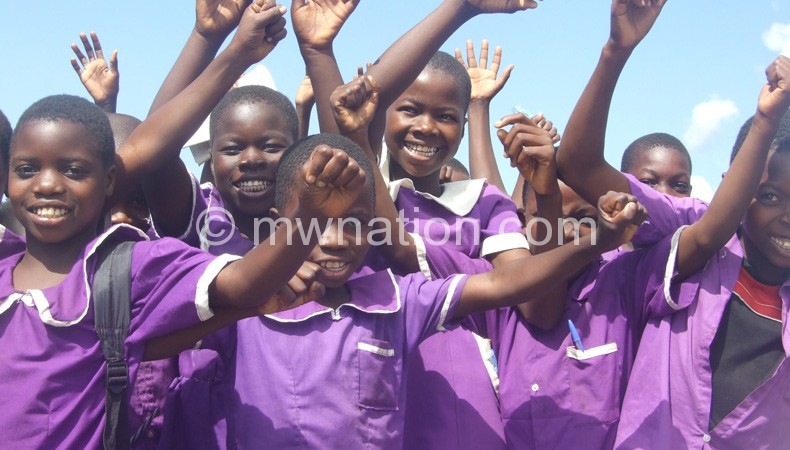Rusty smiles of Karonga Nyungwe
Lack of potable water still affects people of Karonga, especially in Karonga Nyungwe Constituency. Why is the area lagging behind? James Chivula investigates
It has been a long wait. Since human beings came into being or so.
 More than the 50 years of Malawi’s self-rule—an era or false starts and frustrations. Of doubts and worries. Even the long wait for water that will not discolour their teeth and their children.
More than the 50 years of Malawi’s self-rule—an era or false starts and frustrations. Of doubts and worries. Even the long wait for water that will not discolour their teeth and their children.
But the majority of smiles in Karonga Nyungwe Constituency and parts of Karonga Central produce enough evidence that the country needs to migrate from boreholes to tap water, a shift that has long eluded rural settings where three out of four Malawians live. Theirs is no new call. It is the same Dedza East parliamentarian Juliana Lunguzi made in Parliament when he asked government to stop borrowing heavily to drill boreholes.
Karonga lies on the shoreline of Africa’s second third fresh-water body, Lake Malawi, but locals have been crying for water for decades. Like the locals, group village head Mchekacheka has been wondering: It is 2014 and why should they be drinking from boreholes that make our teeth brownish when the continent’s third-largest fresh-water lake lies within reach?”
The tale of two worlds transport any pensive mind into the questions Lunguzi, now chair of the Parliamentary Committee for Health, loves to ask: “Indeed, what crime did the rural dwellers commit? Why do those in towns and in leadership positions think that people in the villages deserve water from boreholes? What qualifies you and me for piped water while others have been condemned to a life of boreholes?
In Karonga, it is clear why the central and Nyungwe populations are looking perturbed by the irony.
“Look at the children. Do you see anything to smile about?” asks Mchekacheka.
But his allusion to Morgan Heritage’s hit song Nothing to Smile About mirrors lingering lamentation for children with yellowish and brownish teeth who have become human faces of the area’s silent calls for water without unwanted salts, locals say.
“In the 1970s, our area had no safe water sources and government drilled deep boreholes whose water had no impact on teeth.
“In the late1980s, we wanted water for all, and both government and non-governmental organisations came to drill shallow boreholes. Since that time, we have had numerous cases of children with brownish teeth, reminiscent of the times we were drinking from wells and streams,” says the near octogenarian.
In the area, primary schools offer vivid glimpses of why pupils do not seem amused growing up in the cassava-growing shoreline hugely endowed with fertile soils, easy access to fish and the vast wetland that is Wovwe Rice Scheme.
At Matinkhula, the maligned pupils can be spotted silently nursing their yellowing teeth as the few without blemish laugh out loud. The pigment makes their teeth look rotten, but a close examination shows neither cavities nor plaque. The tragedy is that those affected prefer keeping their mouths shut, for opening up—even the slightest of smiles—reportedly exposes them to ridicule.
“Women are in trouble when it comes to fetching water, but that is nothing compared to what children are facing,” Florence Nthala of Mwayimeyu Village where 600 people use one borehole. Government standards require every borehole to serve no more than 250 people, says district water officer Aaron Chaponda.
In Nthala’s words, the plight of women is pronounced. They wake up around 3am to beat the snaking queue at the solitary water point, but they only return after 6am. To get two buckets, the long waits and travels does extend to 10am. This does not only deprive them of time for business and other ventures to develop their households.
“The shortage of water sources is subjecting us to sleepless nights,” says the woman. “We go to bed and wake up thinking about where our next bucket of water will come from.”
But this is no trouble like that of Wisdom Sichali’s. He laments that the concentration of salts in water has left all his children, three of them, “with teeth as yellowish as roasted maize”.
Like most locals, the parent of the three blames the shallowness of boreholes.
But Nyungwe is only a glimpse of a problem spiralling far and wide. The yellow teeth were sighted in Ukanga, Ndemwera, Thabiro and Mwayiweyu.
So bad is the problem that nearly 600 of students at Matinkhula Primary School are affected, says head teacher Jeremiah Kasote.
“At Matinkhula, we have 933 learners and three quarters of them have yellowish teeth,” explained Kasote.
According to him, girls are the worst hit as teeth with the indelible often leave them with low self-esteem—“sometime so low that they drop out of school”. Studies show seven of 10 girls that enrol in Standard One drop out of school before sitting Primary School Leaving Certificate (PLSCE). Kasote is convinced that putting in place water with lesser side-effects could help save some of the girls who quit school in preference for marriage.
He elaborated: “Unlike their male counterpart, the girls with yellowish teeth tend to isolate themselves. Most of them cover the mouth with hands when smiling.
“They don’t say it, but some of them are compelled to quit school by intense ridicule resulting from their coloured teeth.”
But the situation is just a glimpse of how sparsely spaced water sources are affecting teaching and learning in Karonga.
Nearly 1 300 learners and 28 teachers at Nyungwe Primary School are no strangers to the problem, says head teacher Richardson Ngoma. n





